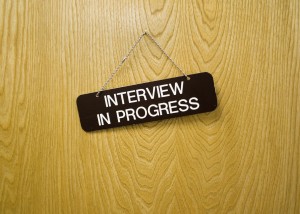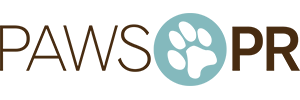 Have you ever watched someone being interviewed on TV and wondered how that person remains so poised, cheerful, and communicates so well? Have you ever watched an interview where the person was obviously unprepared, and you couldn’t help but cringe? Just because you have a great story that you want to share with the public doesn’t automatically make you’re ‘interview ready.’ One of the professional services Paws PR offers is Media Training. We provide personal instruction and practice so that our clients walk into any interview fully confident and prepared to answer any questions thrown at them. Here are some of our tips:
Have you ever watched someone being interviewed on TV and wondered how that person remains so poised, cheerful, and communicates so well? Have you ever watched an interview where the person was obviously unprepared, and you couldn’t help but cringe? Just because you have a great story that you want to share with the public doesn’t automatically make you’re ‘interview ready.’ One of the professional services Paws PR offers is Media Training. We provide personal instruction and practice so that our clients walk into any interview fully confident and prepared to answer any questions thrown at them. Here are some of our tips:
1. Plan ahead!
It’s important to start prepping for an interview before you even have one scheduled. If you practice regularly, your interview skills won’t become rusty, and you will always prepared for a last minute interview. Also, the more you practice before an interview is scheduled, the less you have to worry about basic things like smiling, posture, and tone of voice when an interview does roll around. You can then spend all your energy focusing on the specific topic of the interview.
2. Get info from the reporter!
Ask questions in advance. Find out what their story is going to be, and the angle they want to take. Some reporters will even give you the questions in advance. If you’re answering questions for a print interview, ask them if they will be taking photos of you or if you should provide some. If it’s a TV interview, ask them if they want any additional footage such as ‘behind the scenes’ footage at your company or organization. If so, make sure your staff knows cameramen are coming so that they can keep their area clean and dress appropriately.
3. Prepare what you want to say!
Have your message points written out. Different things work for different people, so feel free to experiment with index cards, one sheet of paper, handwritten notes, or another way to organize your notes. Your notes should be short bullet points or a few words that will jog your memory to the points you are trying to make. Don’t write out and read from a full script. You want to appear as comfortable and conversational as possible, and reading from a script will just come across as impersonal and robotic.
4. Stick to 3 main points!
Interviews are typically very short. Trying to get in more than three main points can be difficult and/or confusing, depending on the subject of the interview. Also, a lot of editing is done post-interview, so if you stray from your main points, the journalist may only include part of the interview that wasn’t your desired focus.
5. Be extra careful with controversial topics!
If you know that you are being asked to answer questions about a controversial topic, we would really encourage you to consult with a professional PR person. A lot is at stake. A bad interview can ruin your reputation and can cause the public think negatively about your company.
6. Practice, practice, practice!
Even if you don’t have a PR person, ask a colleague to role play with you. This is especially important if you are doing TV. If you have access to a video camera, tape your interview and re-watch it. The worst thing you can do is have all the ideas that you want to communicate only in your head or on paper without practicing expressing them. If you have to, talk to a mirror.
Your interview is going to highlight your communication skills, so explain your ideas to someone who doesn’t know much about the subject to see if it will make sense. They will be able to tell you if you are communicating well or using too much confusing jargon.
7. Sit up straight and smile!
During the interview, be aware of your posture. Whether sitting or standing, try to keep your shoulders back and sit up straight. It’s possible to sit straight and look confident while also remembering to move naturally. You don’t want to look like a robot. Smiling is also important, especially for TV interviews. You want to look friendly and approachable. Even if you are talking about a sad or disturbing topic, you can still have a pleasant look on your face without grinning ear to ear—particularly while the interviewer is speaking. Smiling also makes a difference in your voice, making it sound more appealing, so during radio interviews, it’s still important to smile.
8. Dress with Confidence!
When appearing on TV you want to avoid wearing all white or black or any extremely busy patterns. Wear something neutral that doesn’t draw attention away from your face but still makes you feel confident. Because a lot of attention will be on your face, consider having a cosmetologist do your make up – most salons have someone on staff who can help.
9. Represent!
Every company and organization should have more than one media trained person on staff. You never know when someone will be on vacation or fall ill unexpectedly. Set a time, once a week, for all spokespersons to go over talking points and interview skills for 30 minutes—this will keep everyone sharp and interview ready.
Being invited for an interview is a great way to represent your company. Public relations is all about connecting your company to the public. As a representative, you want to present your company as poised, prepared, knowledgeable, and able to effectively communicate the goals of your company in a way that the public can understand. When you connect your company to the public, they will trust you!
Have any questions or want additional tips? Tweet us @pawspr.
